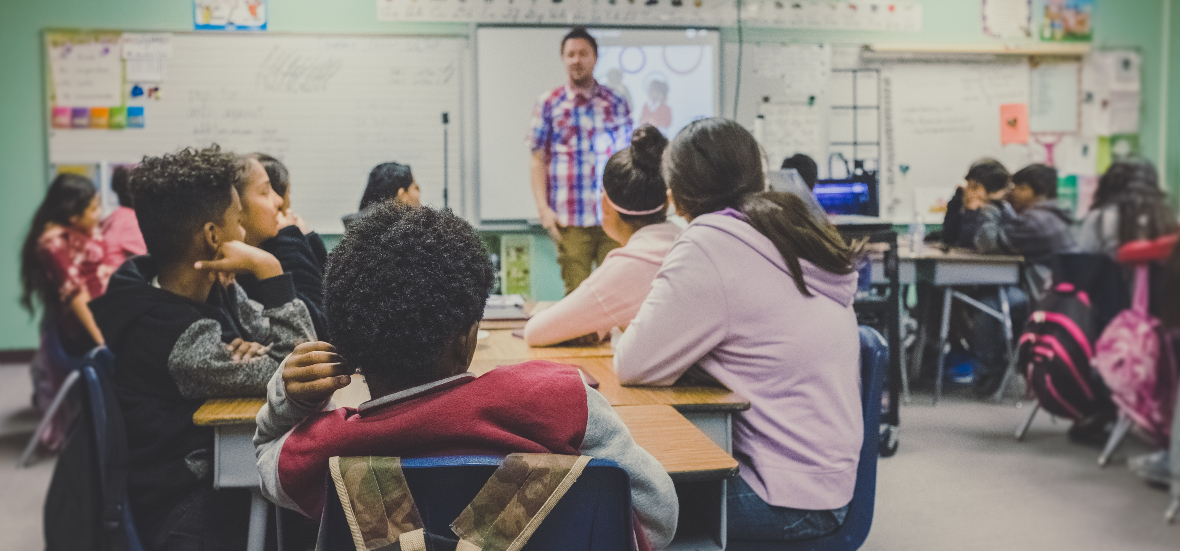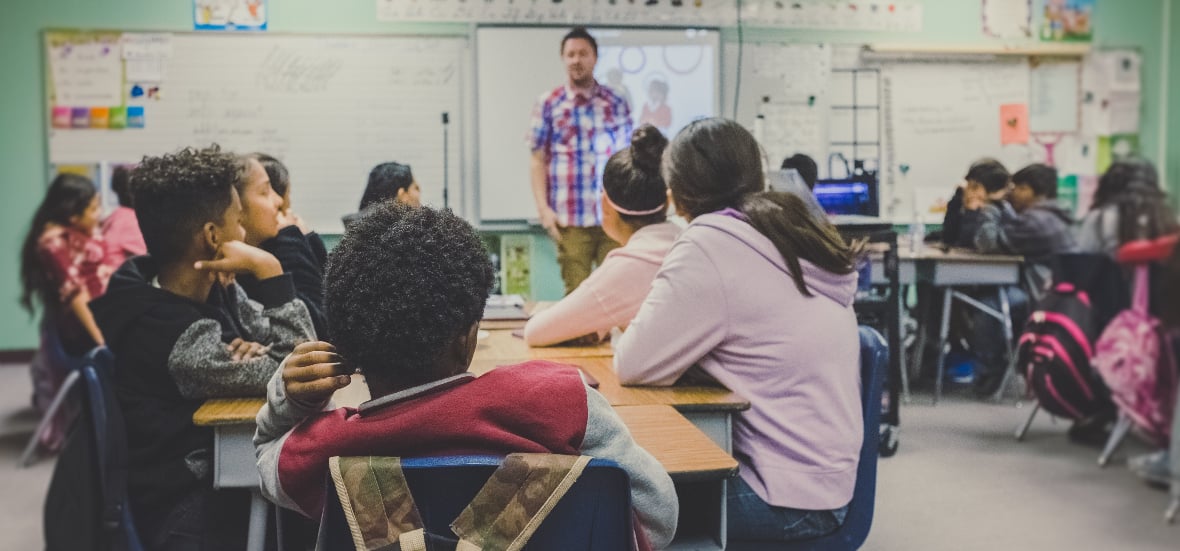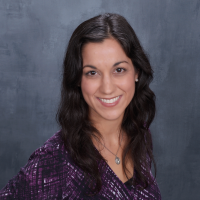
Charlene Bader shares how unintentional prejudice as a teacher affected her fourth-grade religious-education class — and how God is changing her heart.
"You haven't heard of the pope?!"
Only 30 minutes into teaching fourth-grade religious education, my mind generated one assumption after another about my new students: How have these kids been Catholic for 10 years? They couldn't pray the "Our Father" at the start of class. Their "My Faith" worksheets are still mostly blank. They don't know who the pope is. Have their parents taught them nothing?
I inwardly groaned and patted myself on the back for volunteering to teach.
20 confused young faces stared up at me.
Across the room, our teaching assistant, Mrs. Fatima, interjected: "Papa Francisco, niños?"
"PAPA FRANCISCO!!" they all cheered in unison, breaking into excited chatter.
I suddenly realized I'd been pushing on a door that said "pull." Worse than that, my first instinct, when the door wouldn't open, was to assume everyone else in the room was dumb.
"Papa Francisco!" I exclaimed with them, scouring my brain for any recollection of college Spanish. "Lo siento! My Spanish is not good!"
The most effective catechists teach as much through relationship as through coursework. But if I kept mistaking language barriers as ignorance, how could I even begin to form positive connections with my students? I asked the Holy Spirit to make me sensitive and humble in our classroom.
"Open your Bibles to the book of Acts, please. Cómo se dice Acts? I need your help! How do I say Acts en español?" All of a sudden I didn't look so smart, scrambling through a Bible in an unfamiliar language. Thankfully, the kids didn't judge me as I had misjudged them.
"Hechos!" Several students yelled, proudly holding up their Bibles open to the book of Acts.
At the beginning of the year, as I introduced incentives for their achievements — memorized prayers, verses, sacraments, bringing their Bibles and Catechisms — several students asked, uncomfortably, if it was OK if they brought their Spanish Bibles.
I'm embarrassed to admit I paused before answering. Should the faith they learn at home in their mother tongue be only accessible in English at church?
After too long a wait, I finally responded: "Yes, yes, of course, bring your Spanish Bibles! Cómo se dice Bible en español? Bring las Biblias!"
The kids laughed appreciatively at my good-faith efforts in Spanglish. It freed them to search for English words without embarrassment.
When I called on someone to read during class, I never knew if we'd hear the Scriptures in English or Spanish.
Each week immersed us in the truth of Pentecost: the Word of God is the same in every language.
What a joyful class we created. But the year also brought constant lessons in humility. Open Wide Our Hearts, a pastoral letter from the USCCB, describes my interior struggle, realizing how often I jump to negative assumptions about other cultures: "When one culture meets another, lack of awareness and understanding often leads to … attitudes of superiority."
One time, I asked my class about a part of the Mass. "You know when everyone says, 'Lord, hear our prayer' in the middle of Mass?"
They squinted back at me, unsure and quiet.
"What's Mass?" One of the bolder students asked on behalf of everyone.
My Lord, they don't know what Mass is? They're not familiar with the prayers of the faithful? Are their parents not taking them to Mass?! My judgments rolled on.
"The place we go on Sundays with our families — we hear the Bible, we sing songs, we receive Communion?" Why are their parents keeping them from this fundamental cornerstone of our faith?
"Wait, wait, wait — you mean la Misa!" they responded, nearly in unison.
"LA MISA! Yes, I mean la Misa!"
Why had my mind so quickly — so automatically, so easily — assumed something negative of my students and their families, instead of recognizing a simple failure to communicate?
"Racism can often be found in our hearts — in many cases placed there unwillingly or unknowingly by our upbringing and culture," our bishops reflect in Open Wide Our Hearts.
So much of my own faith formation has occurred — and to be honest, as an adult, still occurs — among white, middle- and upper-class Christians. I'm sure this affects my teaching as a catechist in a diverse parish. Looking back, I think of ways I could have done better. Looking forward, I know I will do better.
Thankfully, the Holy Spirit met us in that fourth-grade classroom; God's Spirit faithfully connected our hearts and our cultures, and deepened our appreciation for a universal church.
As catechists — but more importantly, as Catholics — may we listen to the challenge of our pastors, to courageously look inward and examine our hearts for "thoughts and actions that we do not even see as racist, but nonetheless flow from the same prejudicial root ... Each of us should adopt the words of Pope Francis as our own: let no one 'think that this invitation is not meant for him or her.' All of us are in need of personal, ongoing conversion."

Lord, where have I allowed the sin of racism, a lack of awareness, an attitude of superiority, to take root in my life? Change my heart, O God.
Copyright 2020 Charlene Bader
Image: Unsplash (2017)
About the Author

Charlene Bader
Born and raised in Texas, Charlene Bader enjoys teaching, editing, and writing while raising 5 boys with her husband, Wally. She learned to love Scripture from her Baptist parents and liturgy from her Episcopal grandma. In 2003, she converted to Catholicism. Charlene is passionate about helping others experience a personal, relevant connection to the Lord in their everyday lives. She writes personally at her blog, Sunrise Breaking.


.png?width=1806&height=731&name=CatholicMom_hcfm_logo1_pos_871c_2728c%20(002).png)
Comments